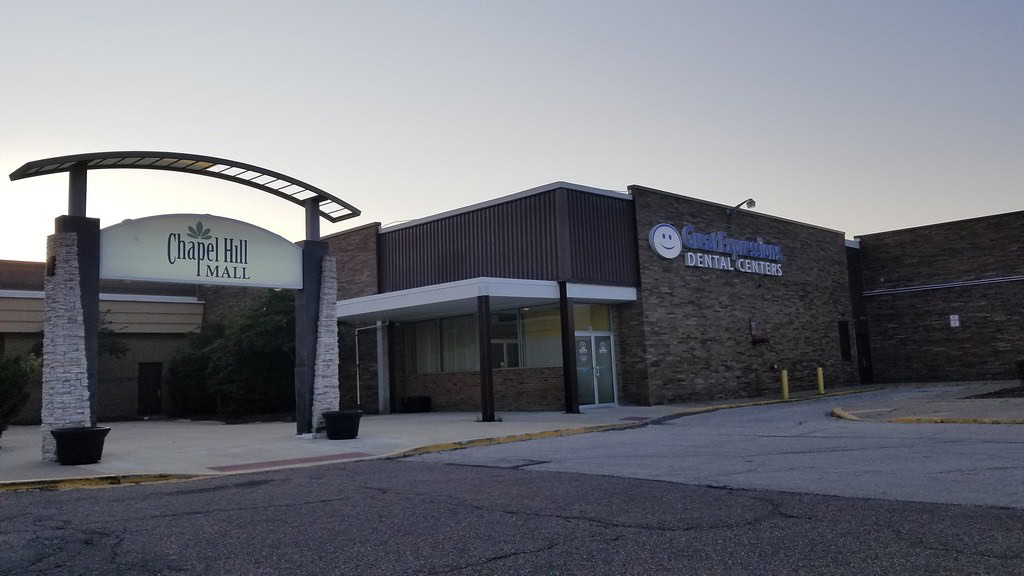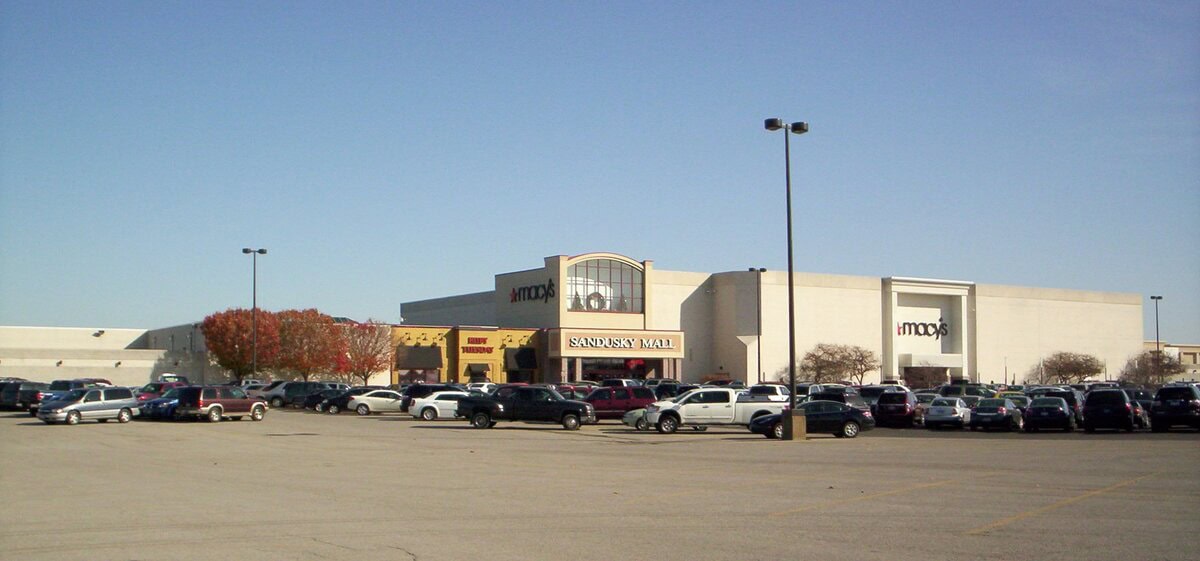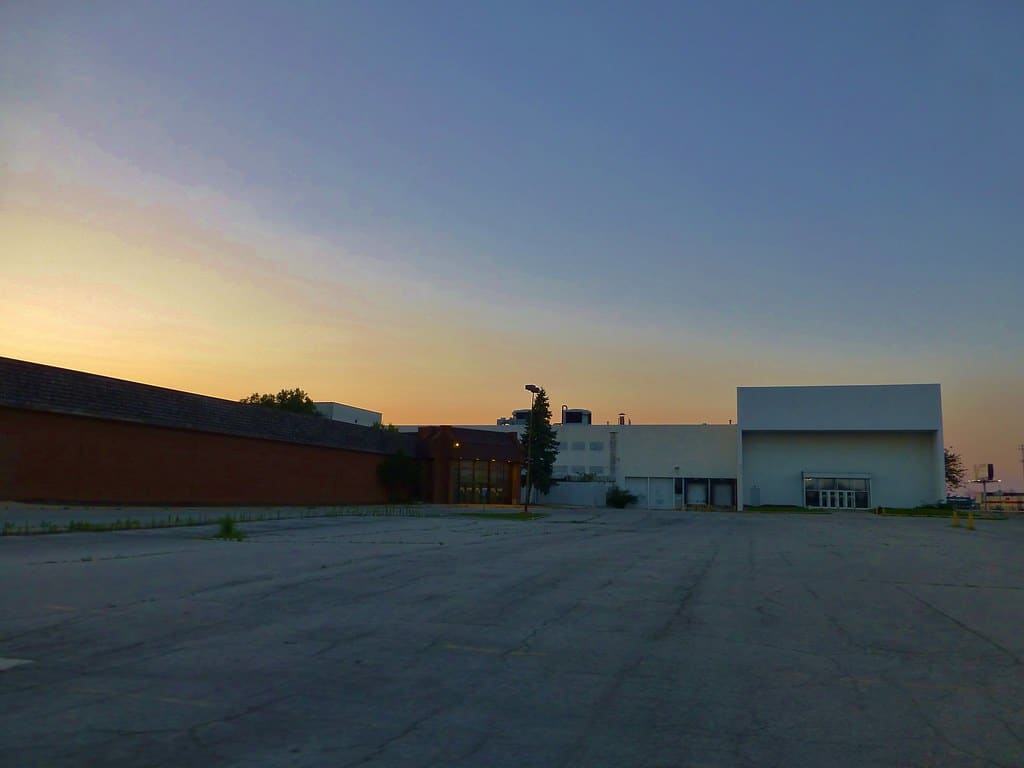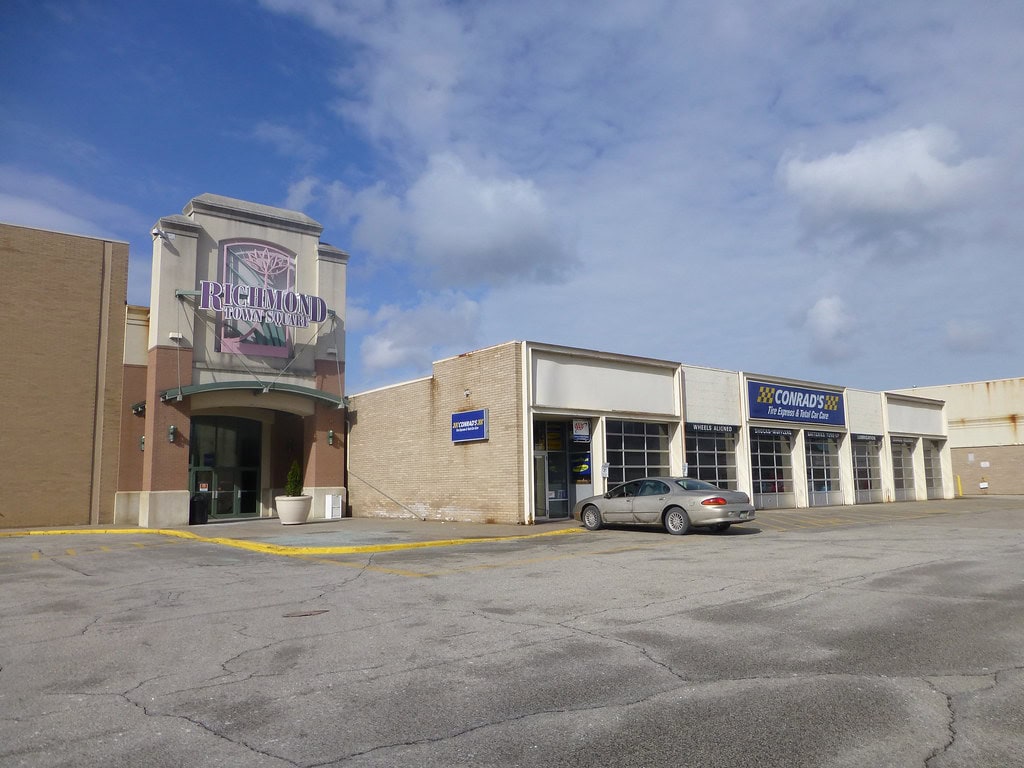When the Mall Meant Everything
Before it was stripped down, leased out, and renamed, Chapel Hill Mall gave Akron its first taste of enclosed retail life. People went there for prom dresses, back-to-school shoes, Orange Julius, and, for a while, even to talk to a 20-foot snowman. If you lived anywhere nearby from the late 1960s through the early 2000s, chances are you didn’t need directions to get there.
It opened in 1967 with Sears, JCPenney, and O’Neil’s already drawing customers before the rest of the building finished.
By the 1990s, the parking lot rarely sat empty. For anyone searching for things to do in Akron, Ohio, back then, Chapel Hill Mall was a given.
What follows isn’t a sentimental rewind. It’s a look at what was built, how it aged, and what remains on that acreage now.
Ground Lease and Retail Intentions
Plans for Chapel Hill Mall began long before its ribbon-cutting in October 1967.
Richard Buchholzer and Forest City Enterprises spearheaded the development, naming it for a natural formation his father called a Native American council circle.
The idea wasn’t abstract – it was tied to family land and a strategy to extend the Hower’s department store brand from downtown Akron into new suburban patterns.
That was the bet: northward growth and enclosed shopping.
Construction followed a clear timeline. Gray Drug Stores opened in November 1966. JCPenney and Sears were operational before the full mall opened.
When the complete structure debuted, it was Akron’s first fully enclosed shopping space, just a few years behind Summit Mall, which had opened at nearby Fairlawn.
From the start, retail volume and design were central.
The structure was climate-controlled, large enough to hold future expansions, and aimed to pull retail gravity away from downtown.
It was a business proposition framed in real estate terms, not a lifestyle experiment.
Forest City saw it as a durable anchor property.
That framing stayed consistent through its early years, less about charm and more about traffic and square footage.

Full Lease-Up and Expansion Push
By the early 1970s, Chapel Hill Mall had filled out.
Department stores were in place, smaller leases were stable, and foot traffic was steady enough to support added amenities.
The mall’s movie theater, originally a modest two-screen operation from General Cinemas, opened in October 1966 and grew into five screens before being retired in favor of an 8-screen multiplex nearby in 1987.
Just south of the main building, Regal Cinemas launched a 10-screen complex in October 1996, accelerating the shift away from in-mall entertainment.
Forest City Enterprises revisited expansion plans more than once.
In 1988 and again in 1989, they floated a 90,000-square-foot addition to accommodate Higbee’s.
On January 31, 1990, the Akron Beacon Journal ran a front-page story announcing Higbee’s would anchor the new section by fall 1991. That plan fell through.
It wasn’t until 1994 that actual structural changes happened: a food court, upgraded lighting, ceiling tiles, new flooring, and added storefronts.
These changes were aimed at keeping pace with other regional malls offering updated interiors and centralized dining.
Ownership held steady until September 2004, when Forest City and Buchholzer sold the property to CBL & Associates Properties.
The new owners took over during a relatively stable retail phase, though challenges were beginning to surface elsewhere in the market.
Margin Erosion and Debt Pressure
Retail headwinds became harder to ignore by the mid-2010s.
Macy’s closed its Chapel Hill Mall location in March 2016, citing weak holiday performance.
Old Navy, which had taken over the former General Cinemas footprint, also exited that year.
Then came the property sale. In July 2016, Kohan Retail Investment Group acquired the mall for $8.6 million.
Their stated goal was to revamp and target younger consumers, though no detailed plan accompanied the purchase.
Tenant attrition accelerated. By August 2018, only about 25 percent of units remained occupied.
The mall carried tax debt and began missing utility payments.
In 2019 and 2020, the City of Akron issued repeated shutoff warnings for unpaid electric and water bills.
Partial payments delayed enforcement, but the underlying shortfalls remained unresolved.
On January 3, 2020, Ohio Edison filed a complaint over $195,000 in unpaid bills.
Ten days later, Summit County served Kohan a foreclosure notice covering over $750,000 in back taxes and utilities.
Retail tax delinquency made up more than half of that balance.
On January 16, 2020, JCPenney announced it would close its Chapel Hill Mall location.
Though the original closing was scheduled for April, the store lasted into July 2020 before shuttering.

Acquisition, Liquidation, Exit
Industrial Commercial Properties entered the picture in March 2021.
By that time, Chapel Hill Mall was functioning more as a liability ledger than a retail asset.
The sale price was $7 million. From that, $844,000 was routed to Summit County to pay off some of what had been stacking up across multiple accounts.
At closing, only 20 of 75 storefronts were still occupied.
Some were mall regulars trying to hang on. Others were kiosks or month-to-month rentals with minimal capital exposure.
The mall itself closed permanently on April 18, 2021.
There was no final countdown, no farewell marketing push, no tenant-curated nostalgia.
JCPenney was gone, Macy’s had left in 2016, and Sears had closed back in spring 2017.
The main anchor suites stood dark.
From a commercial standpoint, the shutdown wasn’t sudden.
Utility delinquency and tax liens had already removed the property from the most viable retail lease consideration.
Few national brands were willing to negotiate leases in a structure where power shutoffs had been actively threatened.
Once ICP acquired the site, they didn’t position themselves as mall stewards.
The intent was different: adaptive reuse of a failing asset, pivoting from foot traffic and storefront turnover to industrial square footage and logistics functionality.
Business Park Conversion and Real Asset Turnaround
The rebranding didn’t come with a ribbon-cutting or a name carved into concrete.
Still, by 2022, work had started. Interior partitions were torn out, landscaping was upgraded, and the former mall exterior got fresh paint.
Industrial Commercial Properties didn’t just secure tenants by proximity.
They adjusted the actual structure.
Interior walls were made to support open layouts that were more aligned with warehouse and light manufacturing use.
The largest early lease went to OnQ, a retail fixture display company serving clients like Walmart and Target.
They moved into 200,000 square feet inside the repurposed building by 2024.
Craft33, Driverge, and Quantix also took space. Altogether, over 150 employees were working on-site by the end of that year.
In the former parking areas, Firestone picked up space as well.
ICP floated plans for a separate free-standing building nearby.
Those weren’t renderings or pipe dreams. They were part of the site development documentation as of 2023.
The “Four Seasons” mural from the mall’s atrium wasn’t removed during the build-out.
It stayed in place inside the OnQ footprint, a fixed remnant of retail design kept amid the industrial refit.
Legacy Installations and Unusual Fixtures
Some elements of Chapel Hill Mall defied retail boilerplate.
The best-known was Archie Arctic, a 20-foot talking snowman stationed in the center court from 1968 through 2004.
Controlled remotely from a concealed booth, Archie interacted with children each winter season.
His eyes glowed, his hand waved, and he asked kids about their Christmas lists.
He didn’t just speak – he listened, giving the illusion of two-way conversation at a time when that kind of interactivity still felt like a novelty, not an algorithm.
There was also the carousel.
Installed in the food court and central to the layout after the 1994 renovation, it served more as a visual centerpiece than a ride destination by the 2010s.
After the mall’s closure in 2021, both Archie and the carousel were relocated to Lock 3 Park downtown.

🍀







